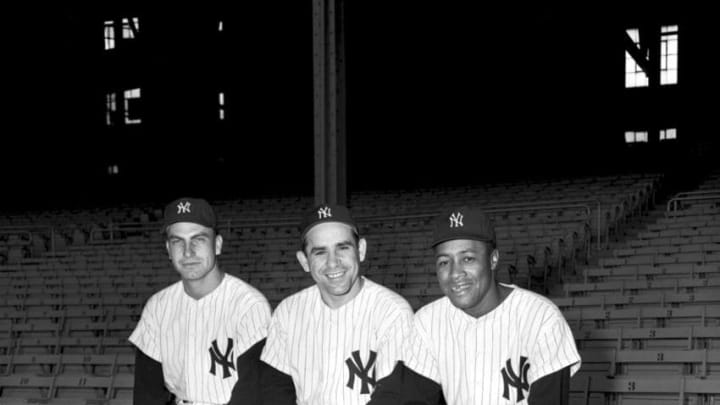Yankees History: Elston Howard outstanding catcher and trailblazer

In addition to becoming an outstanding receiver in MLB, Ellie also was a trailblazer. It was extremely difficult being a black man in the 1950s and 1960s and having to travel through certain parts of the country enduring insults, discrimination, and racism. Nevertheless, he bore the poor treatment and may have taken out his anger (assuming he had any) on the baseball diamond when he played.
He was extremely well respected by other players during his career. When he was with the Red Sox, Tony Conigliaro remarked, “I don’t think I ever saw a pitcher shake off one of his signs. They had too much respect for him.”
In July 1984 the Bombers retired Howard’s uniform number 32 and dedicated a plaque in his honor in Monument Park in Yankee Stadium. Ellie’s plaque describes him as “A man of great gentleness and dignity” and “one of the truly great Yankees.”
Next. Yankees History: Mickey Mantle an American Icon and Hero. dark
When one looks into the Yankees dugout today, it is hard to imagine that it was not that long ago that only white men played for the team. Howard and other black men made it possible for those of color to play the game, be respected and treated fairly, and be honored for their accomplishments.